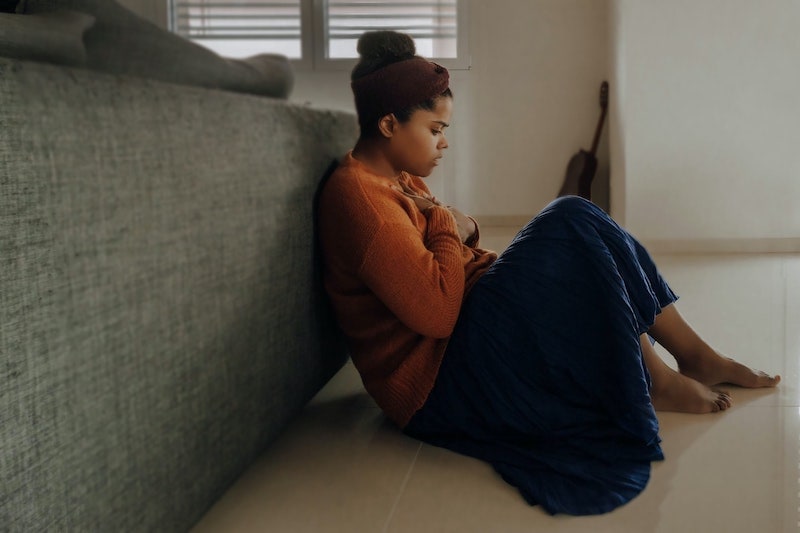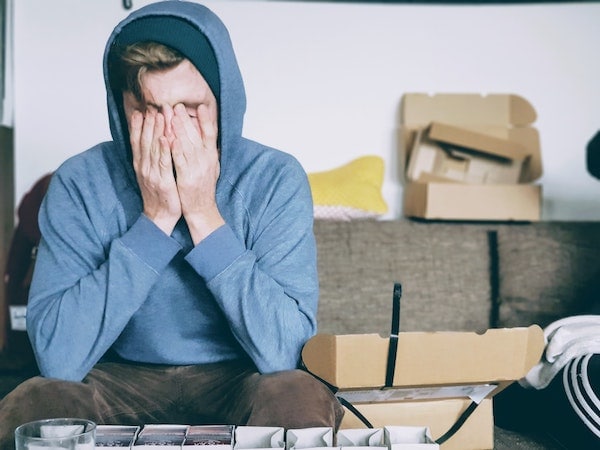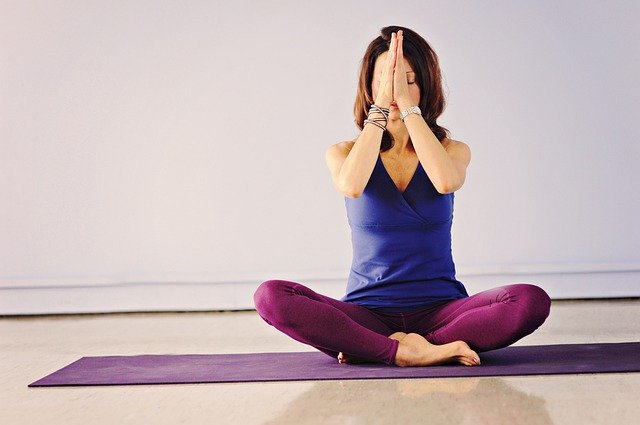Definition of Anxiety:
Anxiety is a common, yet unpleasant feeling of worry, nervousness or apprehensiveness.
It’s common to feel a little anxious every now and then, especially in new situations. But anxiety that occurs regularly or feels uncontrollable may be a sign that you need support.
To help you truly understand the definition of anxiety, anxiety meanings and anxiety-related conditions, and whether it’s time you seek healing advice from a health professional, Avaana have compiled this essential guide to anxiety and anxiety disorders. Here’s what you need to know.
What is Anxiety?
According to Australia’s Healthdirect website, anxiety is,
”the body’s physical response to a threat or perceived threat. It causes a pounding heart, rapid breathing, butterflies in the stomach and a burst of energy as well as mental responses such as excessive fears, worries or obsessive thinking.”
Imagine this…
You’re a caveman or cavewoman living in tune with nature. As the season starts to change and the temperature drops, you feel a sense of uneasiness creep in. You know, from experience, that you need extra fur blankets to stay warm during winter. Then, you remember back to last year (2350 BC) when it was so hard to find food that you sometimes went to bed with an empty, grumbly stomach. And there were only a few blankets to keep you warm on the dirt floor. This sense of impending discomfort drives you to push hard during the day, so you can stock up on grain and furs that will both feed you and keep you toasty warm over the coming months.
Even today, centuries on from the cavemen, you may relate to this example if you equate it to the need to pay your rent or mortgage, or earn enough money to provide food for your family.
As you can see, the real anxiety meaning and purpose is to help you stay alert and navigate the dangers and difficulties in your world. It’s there to promote a sense of survival… but only when it’s in moderation.
If anxiety doesn’t go away, rises without cause, or renders you incapable of dealing with your environment, that’s when it’s time to consider whether your anxiety is actually an anxiety disorder.

What is an Anxiety Disorder?
Anxiety Disorders occur when normal and expected levels of anxiety become uncontrollable and impinge on daily life.
If you have an anxiety disorder, you’ll perceive situations as worse than they truly are. Your level of uneasiness may become so amplified that it impacts your ability to focus, rest, or carry out daily activities at home, school or work – even after the stressor has been removed. In extreme cases, people with anxiety disorders may avoid leaving the house completely.
The Australian Psychological Society states that 16% of Aussies are diagnosed with anxiety disorders every year, making them the most common type of mental health issue in Australia.
Causes
Anxiety disorders are complicated. There is no one cause and scientists are regularly asking themselves, ‘what is the real meaning of anxiety?’ in an effort to uncover a deeper understanding of what causes and contributes to anxiety disorders. In the meantime, current causes include:
Genetics – A genetic predisposition to anxiety and anxiety disorders exist in some people.
Biochemistry – The way the brain processes information has a direct impact on the chemicals, e.g. hormones, that flow throughout the body. In some people, how the brain processes (or misinterprets) information may result in a higher release of chemicals that contribute to feelings of anxiety.
Thought Processes – People who are prone to pessimism, have low self-esteem or who use negative self talk are more prone to anxiety disorders.
Support Systems – Those who feel alone or who are distanced from friends and family can feel the lack of a solid support system in their life. This can enhance a sense of anxiety and make people more prone to anxiety-related conditions.
Stress – The more stress a person experiences, the more prone they are to developing anxiety in the long term. It’s been shown that relationship breakdowns, loss of loved ones, childhood trauma, and the pressures of work/school can increase the potential for anxiety disorders.
Types of Anxiety Disorders
An anxiety disorder develops when feelings of anxiety become severe, frequent, persistent or uncontrollable. The main types include:
Generalized Anxiety Disorder (GAD)
This is when a person experiences anxiety on most days and tends to worry about all things in life. A specific stressor doesn’t need to trigger the feelings, and the anxiousness usually lasts for 6 months or more.
Social Anxiety
A person with social anxiety has trouble navigating and being around people. They have a crippling fear of being criticised, embarrassed or humiliated. This can extend to simple everyday tasks like initiating conversations, eating in public, being assertive or speaking in front of groups. This condition is different from being merely shy or introverted.
Specific Phobias
As the name implies, these are quite specific to a particular object or situation. A person with a phobia will do their best to steer away from their object or situation. There are as many types of phobias as there are situations and objects.
Panic Disorder
A person diagnosed with a panic disorder has attacks which can be powerful, overwhelming and often uncontrollable. They’re accompanied by physical symptoms of anxiety, i.e. difficulty breathing, chest pain, dizziness and excessive sweating. It’s quite likely that a person dealing with a panic attack believes themselves to be having a heart attack, which only worsens the situation. If a person has recurrent panic attacks or persistently fears having one for more than a month, they’re diagnosed with a panic disorder.


Treatment
The treatment for anxiety is contingent on the symptoms you experience and the diagnosis you receive from your practitioner. The aim of treatment is to help control, mitigate or even eliminate your symptoms and may include:
Cognitive Behavior Therapy
Cognitive behavior therapy (CBT) is one the most effective forms of treatment for anxiety disorders. It helps anxious people identify the thoughts and behaviors that play a role in anxiety, which helps with building skills that manage symptoms. Cognitive behaviour therapy is conducted by a Psychologist and involves the following.
- Cognitive restructuring: A technique that empowers an individual to develop a more positive manner of thinking and to challenge negative thoughts as they arise.
- Problem-solving: This technique boosts confidence and makes it easier for people with anxiety to go about their everyday activities and tasks.
- Exposure therapy: This is where a psychologist guides a patient through a series of real and imaginary scenarios, with the goal of helping to reduce fears. This allows the person to practice and cope with their fears before they become reality, which leads to a reduced anxiety response.
- Relaxation: This includes a range of activities, such as meditation or progressive muscle relaxation, that have proven to be tremendously effective in reducing anxiety.
Mindfulness
Mindfulness is a tried and tested form of treatment for those who fit into the anxiety meaning. In mindfulness, a person learns to remain present and notice the symptoms when they arise, without any judgment. It involves accepting and dealing with the symptoms, allowing the individual to identify them and deal effectively with them.

Lifestyle changes
Lifestyle changes are highly effective in reducing stress and controlling anxiety and can include:
- Regular exercise
- Reducing alcohol and caffeine intake
- Eating plenty of fresh fruits and vegetables
- Sleeping adequately
- Seeking the support of family and friends
- Seeking psychological therapy for mild-moderate anxiety and depression, as well as specialised psychological and medical treatments for severe depression and/or anxiety
The Road To Recovery
While the road to anxiety recovery looks different for everyone, those dealing with anxiety disorders are likely to embrace any reduction in symptoms. While it’s unlikely that symptoms will spontaneously resolve, proper treatment can result in symptoms regressing over time. All improvements deserve to be acknowledged, as this helps the brain embrace a more relaxed state moving forward.
If you’re dealing with anxiety or an anxiety disorder, consult with a doctor, counsellor or mental health professional. Avaana can help you find a Counsellor if you would like to talk to one. Even though it may take time to feel better, professional help can support you manage anxiety and improve your quality of life.



